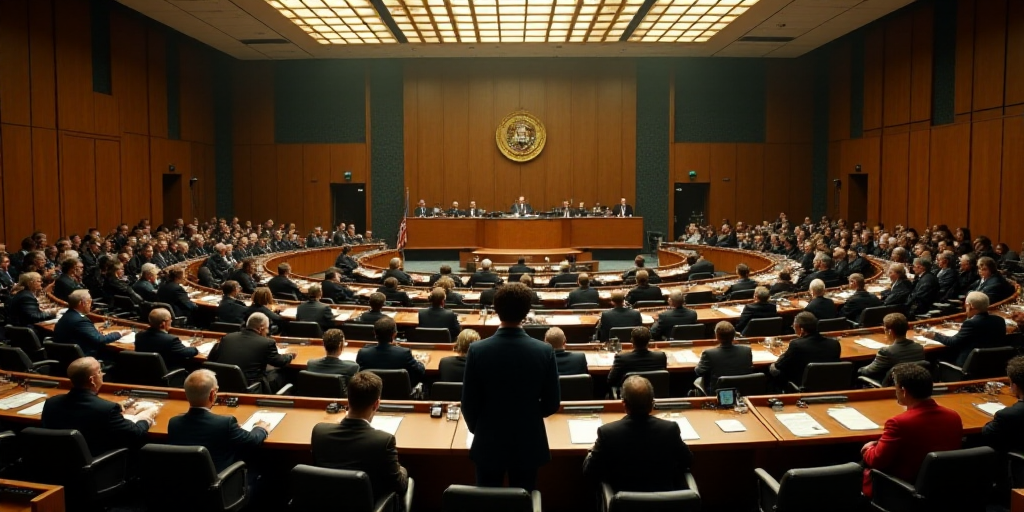Background on the Telecom Law and Key Players
The Mexican Senate has temporarily halted the proceedings of the new Telecommunications and Broadcasting Law, following concerns raised by opposition parties and business leaders regarding various aspects of the legislation. The law, proposed by President Claudia Sheinbaum Pardo and supported by the majority in the Senate represented by Morena and its allies, was set to be discussed and potentially approved during the regular session on Monday.
The Controversy
Critics, including the Panal, PRI, and MC parties, expressed their disapproval of certain provisions within the proposed law. Specifically, they were concerned about an article that could potentially allow for the blocking of digital platforms deemed critical or unfavorable to the government. This led to a request from Sheinbaum Pardo for modifications or even the complete removal of this article.
Senate’s Response
In response to these concerns, Adán Augusto López Hernández, coordinator of the Morena parliamentary group and president of the Political Coordination Board (JCP), announced that a dialogue process would be initiated with all relevant economic, social, academic, and technical stakeholders involved in the Telecommunications Law. This process was scheduled to begin on Monday.
Key Questions and Answers
- What is the main issue with the proposed Telecommunications Law? Opposition parties and business leaders are concerned about an article that could potentially enable the blocking of digital platforms critical or unfavorable to the government.
- What did President Claudia Sheinbaum Pardo request? She requested the modification or removal of the aforementioned article following criticism from opposition parties.
- What action did the Senate take in response to these concerns? The Senate announced that it would initiate a dialogue process with all relevant stakeholders, starting from Monday.
Context and Impact
The proposed Telecommunications Law has sparked controversy due to its potential implications on digital platforms’ freedom and the role of a newly proposed independent agency. Critics argue that this agency, which would be under the President’s control and have five council members appointed by her, could pose a threat to free speech online. They fear that this structure might lead to censorship and the suppression of dissenting voices, reminiscent of actions taken by recognized dictators in other countries.
The law’s proceedings were initially set to move forward without significant changes, despite the concerns raised. However, following public outcry and pressure from opposition parties, the Senate decided to postpone the discussion until an extraordinary session in May or June. This move aims to address the concerns of various stakeholders and ensure that the final legislation respects freedom of expression and digital rights.
The Telecommunications Law is significant as it could reshape Mexico’s digital landscape, affecting how information is disseminated and consumed. Ensuring that the law upholds democratic principles and protects citizens’ rights is crucial, making the ongoing dialogue and potential revisions essential for a balanced outcome.






